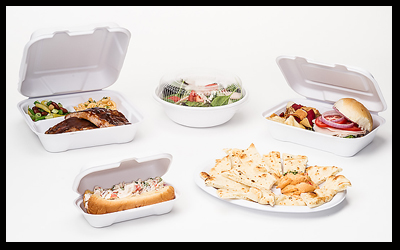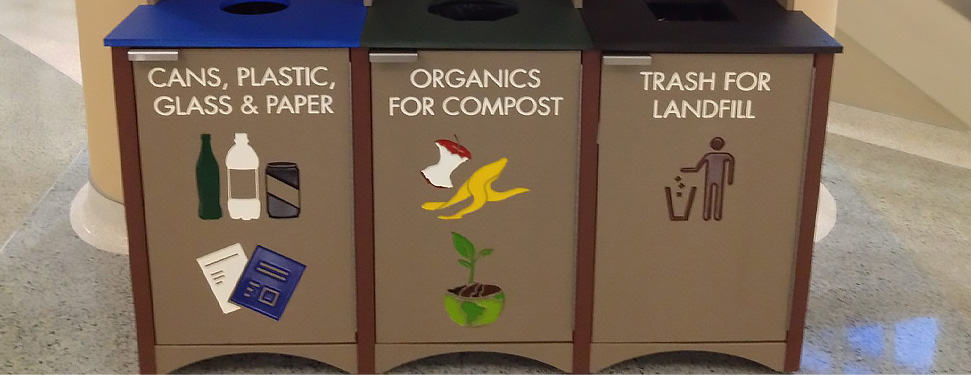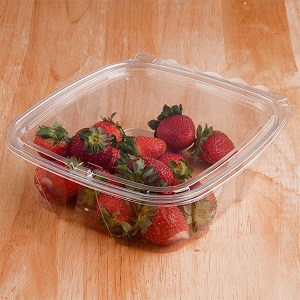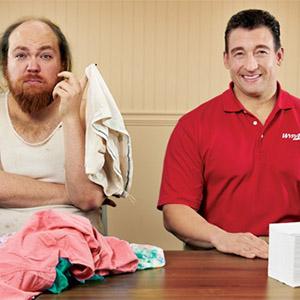How Your Cafeteria Can Reduce its Carbon Footprint
Johnston and Genpak Partner to Bring You Products that Will Give Your Cafeteria an Eco-Friendly Makeover
Does this scenario seem familiar? A non-compostable tray is grabbed by a student who has stopped by your cafeteria for lunch. The student eats his/her food and throws the tray into the garbage can. The tray is then picked up by sanitary workers and brought to a dump, where it will meet its final end in a landfill.
What’s wrong with this picture?!
Answer … Over time, the tray will decompose and emit toxins which will ultimately pollute the air and water. This is not good!
More and more, schools are turning to green alternatives to lower their carbon footprint and increase their sustainability. Methods such as recycling and using biodegradable containers in the cafeteria are on the rise. The movement to use eco-friendly products offers a multitude of benefits, including the following:
Less Pollution
Disposing of biodegradable products releases less pollution into the environment. These products break down into nontoxic materials. The decomposition process does not release toxic gases which pollute the air and water.
Compostability
Composts give, what would otherwise be considered trash, a place and a purpose. Composting biodegradable products allows for the breakdown of material into nutrient-rich soil. Schools can then use that soil to grow their own food, vegetables and herbs. This leads to reduced food purchasing costs and an increase in fresh ingredients used in cooking. Click here to learn how to start a compost pile.
Quality
Biodegradable products now meet the same quality standards as non-biodegradable products. Genpak’s biodegradable packaging offers hinged, stackable and durable qualities. Perfect for hot foods and cold foods, the material used is non-absorbent which will avoid weaknesses in the product.
Inspiring
Recycling and the use of biodegradable products sparks inspiration for schools to take their eco-friendly initiatives beyond the cafeteria. Sustainable curriculum and environmental degrees are offered to students, creating tomorrow’s leaders that will even further our green advancements.
How Your Cafeteria Can Reduce its Carbon Footprint

Harvest Fiber Compostables
Johnston has partnered with Genpak to bring you the products that will give your cafeteria an eco-friendly makeover. Plates, To-Go containers and even trays are all part of a line that is 100% natural.
Here’s a new scenario: Your cafeteria manager makes the decision to go with Johnston when purchasing products. We will suggest Genpak’s biodegradable line. A new tray is grabbed by a student who has stopped by the cafeteria for lunch. The student eats his/her food and throws the tray into a compost bin.
Now ask yourself, What’s RIGHT with THIS picture?
Answer … The compost process will start and the biodegradable tray will turn into nutrient rich soil.
While you can stop there, your possibilities have just begun. You can use your nutrient rich soil to begin an on-site garden to grow fresh produce which will then be used in your meals that you serve students.
Johnston’s answer to your cafeteria needs goes beyond purchasing natural products- it will allow your facility to become more sustainable.



